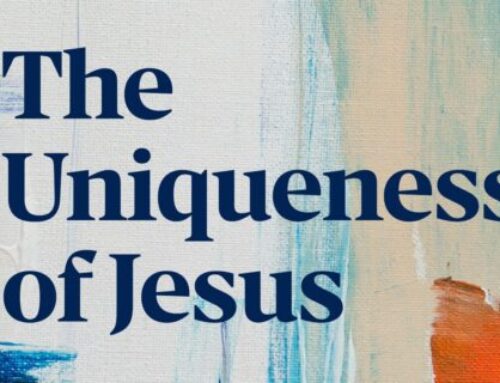Holy Hell – Islam’s Abuse of Women and the Infidels Who Enable It
November 24, 2025
By
Reprinted from Frontpage Magazine
Last year in France, three Muslim boys kidnapped a Jewish girl on her way home from school. One of the attackers reportedly told the victim, “I know you’re not Muslim… So, what religion are you?” When she told them, they called the girl a “dirty Jew” and proceeded to gang-rape her, which they filmed. Afterward the boys asked the girl to convert to Islam and made her swear by Allah that she would tell no one.
But she reported the crime, and in the trial this past June, two of the boys were given seven- and nine-year prison sentences for the gang rape of a minor on the basis of religion. They were 13 at the time of the crime. The third boy, who had been 12, was sentenced not to prison but to five years in an educational facility, because he was “below the age of criminal responsibility.” The presiding judge noted, “There is no doubt that [the victim] would not have been assaulted or raped if she had not been Jewish.”
Why were the rapists so intent on verifying that their victim was non-Muslim? Why did they denigrate her Jewishness? And why did they insist she convert to Islam?
The explanation lies in the riveting, brand new book Holy Hell: Islam’s Abuse of Women and the Infidels Who Enable It, an urgent, fearless exposé by the indefatigable Robert Spencer. It irrefutably demonstrates Islam’s theological justification for rape, sexual abuse, and sexual enslavement of non-Muslim girls and women worldwide.
Spencer is, of course, director of the indispensable Jihad Watch and a Shillman Fellow at the David Horowitz Freedom Center. As FrontPage Mag readers well know, he is the prolific author of nearly three dozen books including the bestsellers The Politically Incorrect Guide to Islam (and the Crusades); The Truth About Muhammad; The History of Jihad: From Muhammad to ISIS; and The Critical Qur’an, to name just a few.
Despite any honest discussion of Islam’s foundational texts being routinely branded “Islamophobia” by cowardly politicians and mainstream media talking heads, Spencer has once again gone where almost no one else dares: straight to the sources — the Qur’an, the words of Muhammad according to tradition, and Islamic scholars — to lay out, in relentless detail, the truth about Islam – this time, it’s sickening legitimization of the sexual dehumanization and subjugation of non-Muslim women.
Spencer begins, in an introduction titled “The West’s Rape Crisis,” by explaining why rape rates in Muslim countries are generally extremely low. First, many rapes there go unreported because the behavior involved simply isn’t considered a crime. Second, the Qur’an specifically allows for the rape of non-Muslim women as a legitimate sexual outlet for Muslim men. Again, such activity is not viewed as criminal.
Spencer goes on to note that Islamic scholars defend Qur’anic passages asserting that Muslims may marry, or simply have sexual relations with, “those whom you acquire through war,” for children or women taken captive – “those whom your right hands possess” – thus become the spoils of war, and consent therefore is simply not a factor.
Non-Muslim women also contribute to their own victimization – or so Muslim scholars declare – by not obeying Islam’s modesty laws. Wearing the veil is viewed as protection against sexual molestation; women who do not cover themselves are considered fair game. Just as with consent, male self-restraint is simply not a factor.
Rape as a weapon of war is certainly not unique to Islam, but as Spencer points out, under Islam
the goal is ultimately the expansion of the Islamic community and the diminishment of the infidel community. And so rape of infidel women is also useful as a means to humiliate the defeated infidel force, as well as a means of social control and to aid in the redrawing of ethnic boundaries.
The divine sanction given to it all makes rape of infidel women literally “a holy act,” even today. Indeed, Spencer adduces contemporary examples of Muslim rapists who combine sexual assault with readings from the Qur’an and prayer. A survivor of a UK Muslim rape gang, for example recalled, “My main perpetrator quoted scriptures from the Quran to me as he beat me.” In Pakistan, a pious Christian woman recounted that her rapist “demanded I marry him and convert to Islam.” One 12-year-old Yazidi victim remembered that her Islamic State rapist knelt in prayer both before and after the rape, and later explained that by raping her, he is drawing closer to God.
Spencer draws upon historical examples from the earliest days of Islam forward to today:
Throughout the centuries, and wherever the warriors of jihad went, it was much the same story. It was, indeed, a constant throughout Islamic history: When the warriors of jihad conquered a territory, they would capture women as part of the spoils of war. Those women would be made into sex slaves, in accord with the Qur’an’s words and the example of Muhammad.
In several of the book’s most powerful chapters, Spencer addresses “a national self-immolation unparalleled in human history” – the horror of the UK’s Muslim grooming gangs, which for decades terrorized and raped tens of thousands of English girls – possibly as many as a million – as authorities turned a blind eye in fear of being labeled “Islamophobic” and “racist.”
From there he describes the nightmare of the “New Europe,” which is being transformed into a rape culture thanks to the tsunami of Muslim migration that European elites continue to facilitate through their globalist, multiculturalist agenda to subvert local sovereignty and Western civilization. In Sweden, for example, 92 percent of all violent rapes are committed by migrants and refugees. “In other words,” one psychologist observed, “thousands of Swedish women would not have been raped and thereby traumatized for life had it not been for the influx from Islamic countries.”
The story is the same from Australia to Egypt to India to Africa to Canada to the United States, as Spencer comprehensively demonstrates. “In all cases,” he writes, “the seizure and violation of infidel women is a declaration of Muslim power over the non-Muslims.” Spencer hammers home the point that Islam’s theological justifications are not “perversions” of the religion, but textbook applications of its scriptures and legal tradition used under Islam worldwide, from Boko Haram in Nigeria, to the Taliban in Afghanistan, to the grooming gangs in the United Kingdom.
The book concludes with a chapter on “What Is To Be Done,” in which Spencer puts forward actions we can and must take to come to terms with this brutal reality and put an end to it.
At just under 300 pages, Holy Hell is lean, tightly argued, and impossible to put down despite its distressingly grim subject. It should be required reading for every political leader in the Western world. Maybe a few would be shaken out of their state of denial.
Remember the three young Muslim rapists referred to at the beginning of this article, two of whom were sentenced to seven and nine years, respectively? Last week, the boy with the greater sentence had it reduced by two years by the Versailles Court of Appeal, the better to prepare him for “future reintegration.”
“Reintegration”? He was never integrated into French society to begin with, because the boy’s supremacist religion demands that he view infidels as less-then-human property. Until Western authorities abandon their delusions and denials about Islam, the rape jihad will only continue to claim more victims.








Leave A Comment
You must be logged in to post a comment.